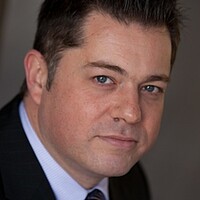In Tokyo, Obama plays up solidarity with Japan
Loading...
| Tokyo
President Obama has assured Japan that the United States will defend its ally in the event of a conflict with China over the Senkaku islands, but he warned Beijing and Tokyo that the territorial dispute must be settled through dialogue.
In Tokyo on the start of a four-nation tour of Asia, Obama said he was simply restating the position of successive US administrations: that the US-Japan security treaty covers all territories administered by Japan.
“Our commitment to Japan’s security is absolute and article five [of the security treaty] covers all territories under Japan’s administration, including the Senkaku islands,” Obama said Thursday during a joint press conference with Japanese Prime Minister Shinzo Abe.
Obama’s stops in Japan, South Korea, Malaysia, and the Philippines are designed to demonstrate US support for its allies as part of its strategic “pivot” toward the Asia-Pacific, a region whose unrivaled economic promise is often overshadowed by territorial spats and resentments stretching back to World War II. In Tokyo –the first US state visit in nearly two decades – Obama has been particularly focused on calming a nervous Japan and easing strained ties with Mr. Abe.
But he must also step delicately to assure China that there is no new “red line” in Washington’s relationship with Beijing.
China reacted sharply to Obama’s statements, suggesting that it is unlikely to readily accept the president’s reassurances. But Jun Okumura, a visiting scholar at the Meiji Institute for Global Affairs in Tokyo, said Japan and the US shouldn’t read too much into China’s response, or its attempts to downplay the importance of US-Japan security ties.
“China will of course act like it’s upset, but what Obama said is really no different from statements made by the US in the past,” Mr. Okumura says. “China will condemn Obama’s remarks on the Senkaku as interference by a third-party, but then its surveillance ships will return to the area, make occasional trips into Japan’s territorial waters, and keep [Chinese] fishing boats at a distance. We will all move on.”
The Senkaku have been a source of rising tension between the region’s two biggest economies since 2012, when Japan effectively nationalized the islands, sparking protests in Chinese cities and attacks on Japanese expat businesses.
In an attempt to placate Beijing, Obama described China as a “critical country not just to the region but to the world.” He added: "We want to encourage the continued peaceful rise of China.”
Strains over history – with the US as well as China
Despite today’s public show of solidarity in Tokyo, US-Japan ties have occasionally shown signs of strain since Abe became leader in 2012.
Late last year, Washington took the rare step of registering its concern after Abe visited Yasukuni, a controversial shrine in Tokyo that honors Japan’s war dead. Abe also caused unease when he indicated he would consider revising official apologies over Japan’s wartime conduct, including its use of tens of thousands of mainly Korean women as sex slaves in frontline brothels. He has since said he does not intend to alter the statement.
"The comfort women is what gets the press, but is a part of the wider issue of Japan's attitude to the Pacific War,” says Robert Kelly, an associate professor at Pusan National University in South Korea. “What really needs to happen is for Japanese elites to stop saying creepy stuff about the war and start admitting that Japanese imperialism was harsh and unwanted."
On Thursday, Abe said Japan had reflected on its wartime conduct and “strived to create a free and democratic country” after the war. “Seventy years ago, when the war ended, Japan inflicted grave damage and pain on many people, particularly people in Asia,” he added.
But Koichi Nakano, a professor of political science at Sophia University in Tokyo, sees the potential for more discord between Tokyo and Washington over historical issues. “Obama is skeptical of Abe’s nationalism and views of wartime history – after all they come from diametrically opposed political backgrounds,” he says.
“So there is anxiety in the US at a time when it is playing a more complex game in East Asia, over whether Japan can be completely trusted. The question is whether Abe can keep his mouth shut. Even if he does, the suspicions about his views aren’t going to go away as long as he is in power.”
Now – mend your fences
Having given the reassurances Japan sought over the Senkaku islands, the US expects Abe to begin mending fences with its other main ally in the region, South Korea. Obama is expected to make the same request of the President Park Geun-hye over the weekend.
“I think both Park and Abe feel receptive to the US pressure to improve bilateral ties now,” says Kim Hyun-wook, director-general of the department of American studies at the Institute of Foreign Affairs and National Security in Seoul. “What the US needs to do is to actively and officially intervene between Japan and Korea in order to reconcile their relationship.”
Signs of rapprochement emerged last month when Abe and Park joined Obama for talks at the nuclear security summit in The Hague.
Obama underlined the need for Japan and South Korea to work together as part of wider efforts to persuade North Korea to abandon its nuclear weapons program, amid reports that Pyongyang may be preparing to conduct its fourth nuclear test.
“North Korea has engaged in provocative actions for the last several decades – it is an irresponsible actor on the international stage,” Obama said. “Our message has been consistent … they’re the most isolated country in the world, subject to more sanctions and condemnation than any other country. If you are serious about North Korea being a normal nation you have to start with normal behavior, and that starts with denuclearization.”








